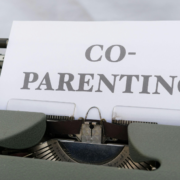When you and your spouse divorced, you created a parenting plan that met your children’s needs at the time. But schedules and priorities never stay the same. Adapting the parenting plan as children age can ensure that it meets their needs now and fits with your family’s Bucks County lifestyle.
Understand That Children’s Schedules and Needs Change
Perhaps you divorced when your children were young, and now they are entering middle school or high school. What made sense for your family at the time of your split may no longer fit these evolving needs.
Maybe one child is into sports, while another is involved in several clubs or extracurriculars. Perhaps one child attends a different school now or seriously practices an instrument. Equally dividing their time between both parents may not be realistic with these new schedules. Remember that the goal of a co-parenting agreement is doing what is best for the child, not for the parents.
Sit Down and Talk With Your Children
Now that your children are older, they should have more of a say in their visitation schedule. Sit down together with your ex-spouse and children and have an open discussion about what the custody arrangement should look like now.
Ask each child individually whether they have any preferences about the schedule, and take their opinions seriously. They don’t need to have the final say, but the custody arrangement should reflect their wishes as much as possible. They may have more insight into what schedule makes sense than you and their other parent do.
Be Realistic About Their Best Interests
It may be challenging to realize that your children should spend more time with your spouse than with you. Try to be realistic when adapting the parenting plan as they age. Even if they previously went back and forth every week, this may no longer make sense for their schedules and needs.
Not seeing them as often doesn’t mean you are any less of a parent or an influence in their lives. Remember that children naturally need their parents less the older they get. Physical custody doesn’t need to significantly impact their relationship with you.
Be Flexible and Prioritize Good Communication
Keep in mind that whatever you decide about the parenting plan now may only last for a year or two before you need to change it again. Be open to adapting it as needed and communicate with your ex-spouse regularly about what makes sense for your shared children moving forward.
Acting with hostility toward your ex-spouse will only drive a wedge between you and your children. Instead, maintain a mature mindset and show that you value their opinions.
Give Karen Ann Ulmer, P.C., a Call If You Need Assistance
If you need help adjusting your parenting plan as children age, changing your child support agreement, or updating any other aspects of your legal custody arrangement, our attorneys can advise you. Contact Karen Ann Ulmer, P.C., today at (866) 349-4149 to book a consultation.












